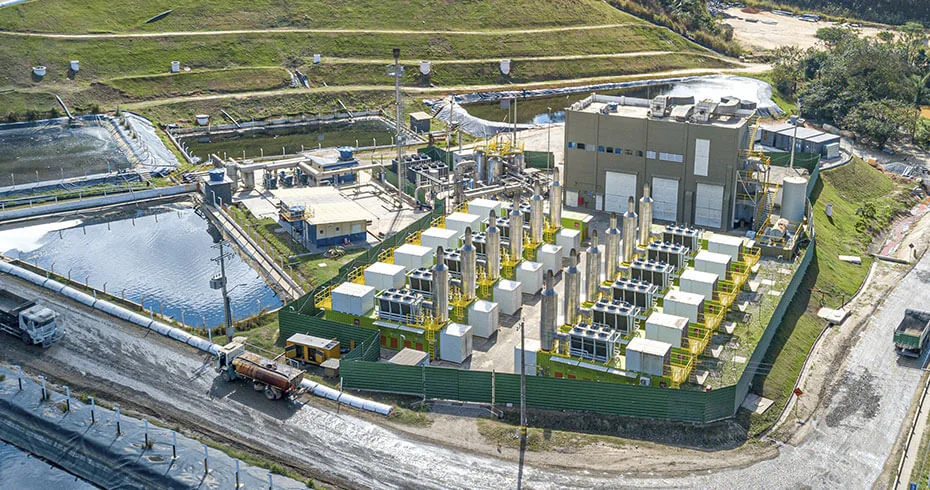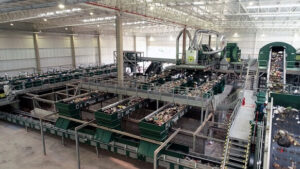
Milton Pilão, the company’s CEO, spoke to Faria Lima Journal
Source: Faria Lima Journal by Luciano Costa – 11/21/2024
São Paulo, 11/21/2024 – The project to create a regulated carbon market in Brazil, which has just been approved in the Chamber of Deputies and awaits presidential sanction, is expected to generate positive impacts for companies operating in the sector as early as 2026, projected the CEO of the waste valorization group Orizon in an interview with Faria Lima Journal and Mover, the news unit of TC Investimentos.
In the third quarter, Orizon generated revenue of R$37.4 million from CO2 credit sales, compared to net revenue of R$249 million during the same period. However, these operations were conducted in voluntary carbon markets, whereas regulated markets, such as the one proposed in Brazil, typically allow for transactions under better conditions.
Furthermore, an agreement announced now at COP-29 in Baku is expected to allow companies like Orizon to resume trading CO2 credits with other countries within a regulated framework created by the UN. This trading had been stalled since 2022 due to disagreements over Article 6.4 of the Paris Agreement.
“With this stalemate, we were unable to trade CO2 credits in the regulated market, and we had to migrate projects to the voluntary market. There are two key points here. First, the time taken to migrate projects. Second, some projects cannot migrate to the voluntary market due to factors such as the project’s age,” explained the CEO, Milton Pilão.
“With these recent developments, which are very positive—the approval of the carbon market legislation and an agreement on Article 6.4 in Baku—we now foresee the possibility of trading landfill credits in the regulated market that previously couldn’t. Additionally, our entire base can operate in the regulated market, with potential for higher pricing,” he added.
According to Orizon’s CEO, the legislation now needs to be sanctioned by President Luiz Inácio Lula da Silva (PT) and undergo a regulatory phase that should take “at least 12 months” to complete. “So we expect to see positive impacts from this new regulation in our numbers starting in 2026.”
Another regulation seen as “important” by Orizon was the recent approval in Congress of the Future Fuel project, which establishes incentives such as a 1% mandate for renewable natural gas in the volumes of natural gas traded, produced, or imported starting in 2026, increasing to 10% by 2034.
“It’s a boost to demand,” said Pilão. “With greater demand, there are more clients and potentially even higher value for renewable natural gas.”
Orizon, which already produces renewable natural gas at landfills and is expanding production through its subsidiary BioE, has observed demand “much higher than supply” for the product, according to the CEO.
EXPANSION
Since its IPO in 2021, Orizon has been growing at an accelerated pace of “high double-digit percentages,” with prospects to “continue growing at an accelerated pace,” Pilão said.
However, with the expectation of high interest rates in Brazil for at least the next 1-2 years, the company has adopted a conservative approach to its plans to maintain a healthy capital structure.
In the area of mergers and acquisitions, Orizon is evaluating potential acquisitions of landfills that could increase its waste volumes by an additional 30% to 40%, but with caution and a focus on “young” landfills, which require less investment.
“This is a bit of our M&A strategy—continuing to pursue operations that do not significantly impact our capital structure but bring positive prospects,” stated the CEO.
“I was often asked, a few months ago, why we don’t accelerate more, launch more projects, or build more plants simultaneously. But we have a plan for continuous and solid growth without sudden surges. This ensures we always maintain a grounded approach and a healthy capital structure,” the executive commented.
Orizon reported a profit of R$41.2 million in the third quarter, a more than tenfold increase compared to R$3.8 million in 3Q23 and more than triple the R$11 million in 2Q24. Leverage, measured as the ratio of net debt to EBITDA over 12 months, stood at 2.71x, down from 2.78x in the previous quarter.
(LC | Edited by Luca Boni | Comments: equipemover@tc.com.br)



